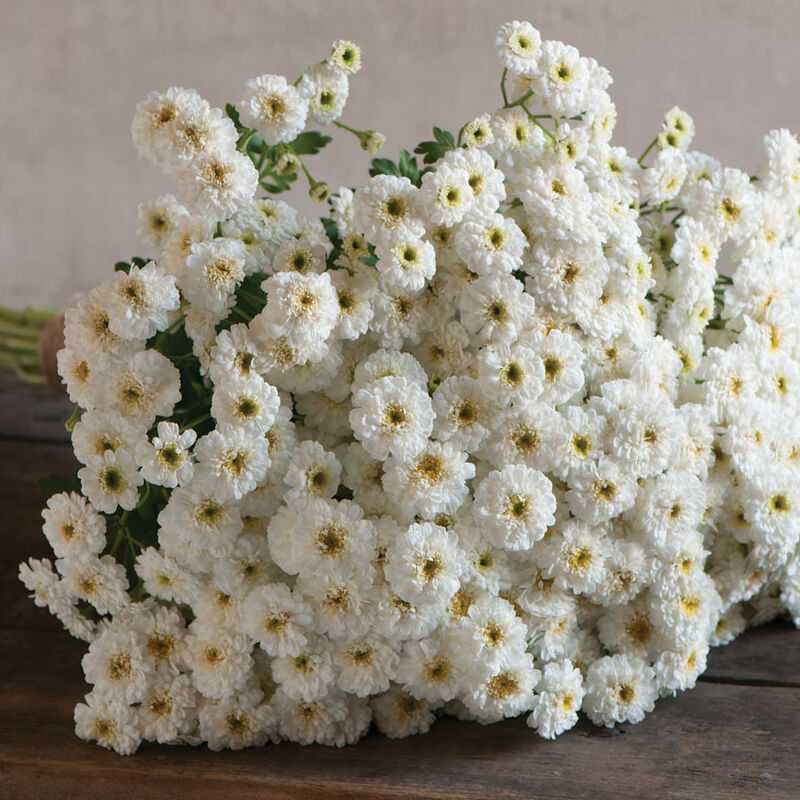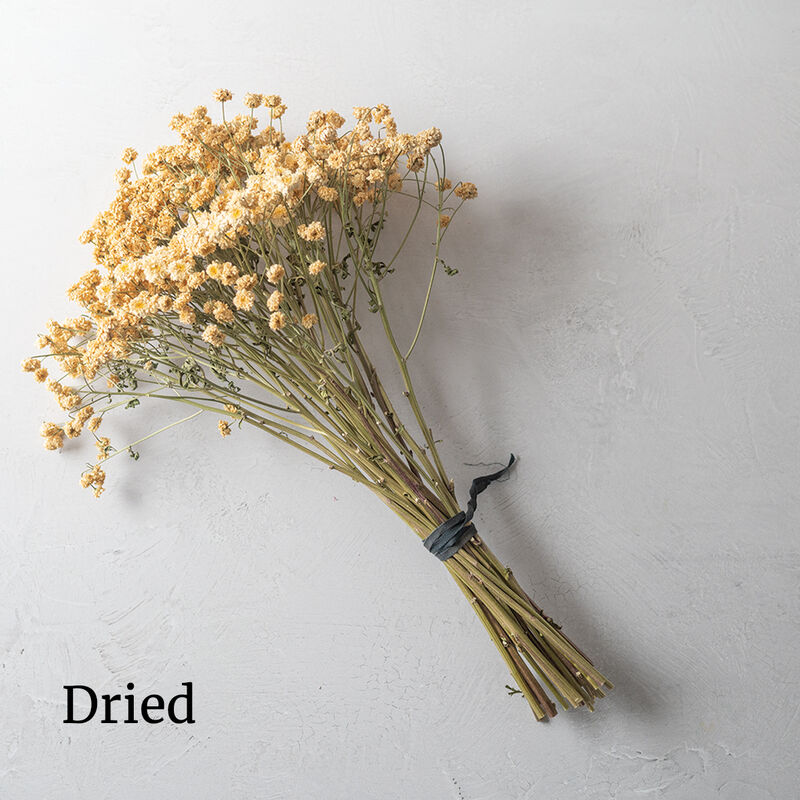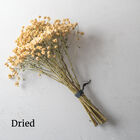Tetra White Matricaria Seed
Product ID:1708.111708
Tetra White Matricaria Seed
Product ID:1708.111708
Similar timing, plant habit, and productivity to Magic series.
Fully double 3/4–1" blooms uniformly fill the top of the plant, making it a very productive cut flower. Blooms are pure white with citrus-yellow to lime-green centers. Tender or short-lived perennial in Zones 5–9. Also known as feverfew.Specs:
DAYS TO GERMINATION:
10-14 days at 70°F (21°C)SOWING:
Transplant (recommended) - Sow 5-7 weeks before transplanting in either spring or fall. Gently press the seeds into growing medium, but do not cover as light aids germination. Bottom water or mist to avoid covering the seed with displaced soil. Transplant to cell packs or 3-4" pots 2-4 weeks after sowing. Harden off before transplanting. Feverfew is a tender, or short-lived, perennial in zones 5-9. Fall Planting: To achieve longer stems and earlier blooms, we recommend fall planting (outdoors or in high tunnels). By overwintering young plants inside a high tunnel for spring harvest, you can attain very tall (up to 48") and abundant stems. Transplant 3-4 weeks before first frost. Spring Planting: For optimal stem and flower quality, treat spring-planted feverfew as an annual. Transplanting inside high tunnels very early in the spring will yield long stems and abundant blooms. Row covers can also be used to protect early plantings during cold spells. Transplant into high tunnels once indoor temperatures are above freezing. Direct seed - As soon as soil can be worked. Gently press the seeds into the soil, but do not cover as light aids germination. Keep soil surface moist until germination. Thin when seedlings have the first true leaves.LIGHT PREFERENCE:
Sun. Feverfew is a long-day plant, meaning flowering is generally initiated during the longest days of the season. Plants will eventually bloom under short-day conditions but on shorter stems.PLANT HEIGHT:
28-36".PLANT SPACING:
8-12".HARDINESS ZONES:
Zones 5-9. Treat spring-planted feverfew as an annual for the best plant habit and flower production.HARVEST:
Fresh: When flower cluster is 3/4 open. Dried: harvest when flower cluster is almost fully open.SOIL REQUIREMENTS:
Light, well-drained, moist, fertile soil. 6.0-7.2 pH preferred.USES:
Excellent cut and dried flower. Beds, borders, and containers.SCIENTIFIC NAME:
Tanacetum partheniumJohnny's is committed to your success, every step of the way.
We want you, our customer, to be 100% satisfied with all of our seeds, tools, and supplies.
If anything you purchase from us proves unsatisfactory, we will either replace the item or refund the purchase price.








